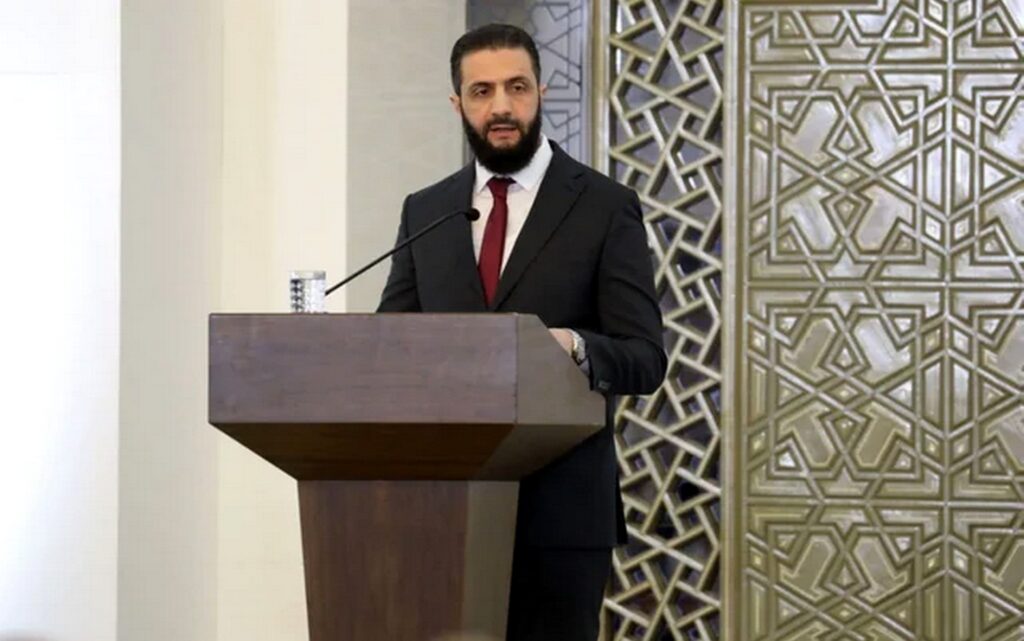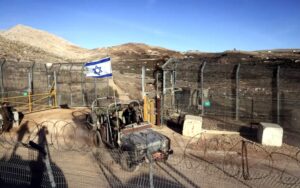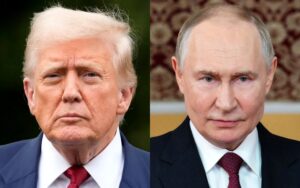The National Interest: Challenges remain despite the historic sanctions relief that marked new chapter for Syria

The recent lifting of US and European Union sanctions on Syria has sparked cautious optimism for the war-torn nation’s recovery.
The move, announced following a meeting between U.S. President Donald Trump and Syria’s new leader, Ahmed al Sharaa, in Riyadh, signals the beginning of Syria’s reintegration into the global economy after 13 years of civil war.
However, experts warn that sanctions relief alone is insufficient to address the country’s deep-rooted challenges, including humanitarian crises, sectarian tensions, and the looming threat of ISIS resurgence.
The overthrow of Bashar al-Assad in December 2024 opened a new chapter for Syria, but the path to stability remains fraught with complexity.
The international community, while hesitant to fully embrace al-Sharaa due to his alleged ties to terrorist groups, recognizes that inaction could exacerbate the risks of further conflict.
“The worst way to mitigate the risks in a turbulent post-Assad Syria is inaction,” writes Delaney Soliday in The National Interest.
Regional powers like Saudi Arabia, the UAE, and Türkiye are being urged to step up their involvement in reconstruction efforts.
These nations have vested interests in a stable Syria, particularly to counter Iranian influence and address regional security concerns.
Saudi Arabia and Qatar have already taken steps to ease Syria’s financial burdens by paying off its $15 million debt to the World Bank.
Türkiye, in particular, faces a delicate balancing act, as its priorities include preventing Kurdish autonomy near its borders and facilitating the return of millions of Syrian refugees.
Recent agreements between Damascus and Kurdish groups to integrate Kurdish institutions into the central government have eased tensions, offering hope for long-term stability.
Turkish President Recep Erdoğan has praised the US sanctions relief as a model for others to follow and has pledged support for Syria’s counterterrorism efforts.
Meanwhile, Gulf Cooperation Council (GCC) countries are expected to leverage their financial resources to fund reconstruction, estimated to cost between $250 billion and $400 billion.
Such investments couldn’t only rebuild infrastructure but also weaken Iran’s foothold in the region.
The US approach to post-Assad Syria is heavily influenced by Israeli concerns.
Israel has pressured Washington to keep the al Sharaa government weak and decentralized, fearing a stronger Damascus could pose new threats.
However, experts caution that another civil war or uprising could bring an even more dangerous regime to power, with repercussions for the entire region.
The US maintains a military presence in northeastern Syria to counter ISIS, but plans to reduce troop numbers have raised concerns.
Local Kurdish forces, supported by the Syria Democratic Forces (SDF), play a critical role in detaining ISIS fighters and preventing the group’s resurgence.
Without sustained international support, the fragile security situation could unravel.
Syria’s humanitarian crisis remains dire, with nearly 70% of the population reliant on aid.
The country’s economy is in shambles, and sectarian violence remains a persistent threat.
Al Sharaa’s government faces the monumental task of rebuilding trust among Syrians and the international community while navigating competing geopolitical interests.
The lifting of sanctions has created a window of opportunity, but the international community must act swiftly to deliver aid, support transitional initiatives, and invest in reconstruction.
“Failure to support the transition at this opportune moment will miss a crucial opportunity,” Soliday emphasizes.
As Syria stands at a crossroads, the collective actions of global and regional powers will determine whether the country can achieve lasting peace or risk descending into further chaos.
The stakes extend far beyond Syria’s borders, shaping the future of a region still reeling from decades of conflict.






